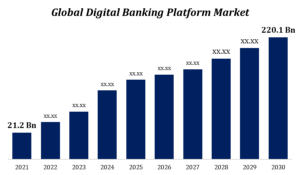Exploring the Impact of AI-Driven Personal Finance Tools on Savings Behavior
In an age where technology permeates every facet of our lives, artificial intelligence (AI) has emerged as a transformative force in the realm of personal finance. AI-driven personal finance tools are not just innovations; they are reshaping how individuals approach saving and managing their money. From automated savings apps to sophisticated budgeting tools, AI is revolutionizing our financial habits and behavior. But how exactly is AI influencing savings behavior? Let’s delve into the ways AI-driven personal finance tools are making an impact.
Understanding AI-Driven Personal Finance Tools
AI-driven personal finance tools leverage machine learning, data analytics, and algorithms to provide users with personalized financial insights and recommendations. These tools range from automated savings apps and budgeting software to investment platforms and financial planning assistants. By analyzing a user’s spending patterns, income, and financial goals, these tools offer tailored advice and automate various aspects of financial management.
1. Personalized Savings Recommendations
AI’s ability to analyze vast amounts of data enables it to offer highly personalized savings recommendations. Unlike generic financial advice, AI-driven tools assess an individual’s unique spending habits, income levels, and savings goals to provide tailored advice. For example, an AI tool might identify recurring expenses that could be reduced and suggest specific actions to boost savings. This personalized approach helps users make informed decisions and adjust their spending habits in ways that are most relevant to their financial situation.
2. Automated Savings
One of the most significant impacts of AI on savings behavior is the automation of the savings process. Apps like Digit and Qapital use AI algorithms to analyze users’ financial transactions and determine the optimal amount to transfer to a savings account. These tools monitor income and spending patterns in real-time, making small, automatic transfers to savings accounts based on what users can afford. This automated approach reduces the likelihood of forgetting to save and helps users build their savings consistently without requiring active effort.
3. Enhanced Budgeting
AI-driven budgeting tools offer real-time insights into spending habits and financial health. These tools categorize expenses, track spending against budgets, and provide actionable tips to help users stay within their financial limits. For instance, tools like YNAB (You Need a Budget) use AI to analyze historical spending trends and suggest adjustments to improve budgeting accuracy. By offering proactive advice and real-time alerts, these tools help users manage their finances more effectively and avoid overspending.
4. Goal Setting and Progress Tracking
AI tools often include features for setting and tracking financial goals. Users can define specific savings targets, such as building an emergency fund or saving for a vacation, and AI-driven tools will monitor progress toward these goals. By providing visualizations and regular updates, these tools keep users motivated and focused on their savings objectives. Seeing tangible progress toward financial goals can reinforce positive saving behaviors and encourage users to stay committed to their targets.
5. Predictive Insights
AI-driven tools offer predictive insights that help users anticipate future financial needs and opportunities. By analyzing historical data and current trends, AI can forecast future expenses and income fluctuations. For example, a tool might predict upcoming large expenses based on historical spending patterns or identify potential savings opportunities during periods of higher income. These predictive insights allow users to plan ahead and make proactive adjustments to their savings strategies.
6. Financial Education and Awareness
Many AI-driven personal finance tools also include educational features that enhance users’ financial literacy. These tools provide insights into financial concepts, budgeting strategies, and investment options, empowering users with knowledge to make informed decisions. Improved financial literacy leads to better savings habits and more effective money management, as users gain a deeper understanding of how to optimize their financial strategies.
Challenges and Considerations
While AI-driven personal finance tools offer numerous benefits, there are also challenges and considerations:
- Data Privacy: AI tools collect and analyze sensitive financial information. Ensuring the security and privacy of user data is crucial. Users should be aware of how their data is being used and ensure that tools adhere to strict privacy standards.
- Accuracy of Recommendations: The effectiveness of AI-driven tools depends on the accuracy of their algorithms and data analysis. Users should be aware that recommendations are based on historical data and patterns, which may not always account for sudden changes in financial circumstances.
- User Trust: Building trust in AI-driven tools is essential for their widespread adoption. Users need to feel confident that the tools are reliable, secure, and capable of delivering valuable insights.
- Complexity of Features: As AI tools become more sophisticated, they may offer a wide range of features that can be overwhelming for some users. It’s important for tools to provide user-friendly interfaces and clear explanations to ensure that users can fully utilize their capabilities.
The Future of AI in Personal Finance
As AI technology continues to advance, the potential for personal finance tools to enhance savings behavior is vast. Future developments may include even more personalized recommendations, advanced predictive analytics, and seamless integration with other financial services. AI could play a crucial role in helping individuals achieve their financial goals, manage their money more effectively, and improve overall financial well-being


































